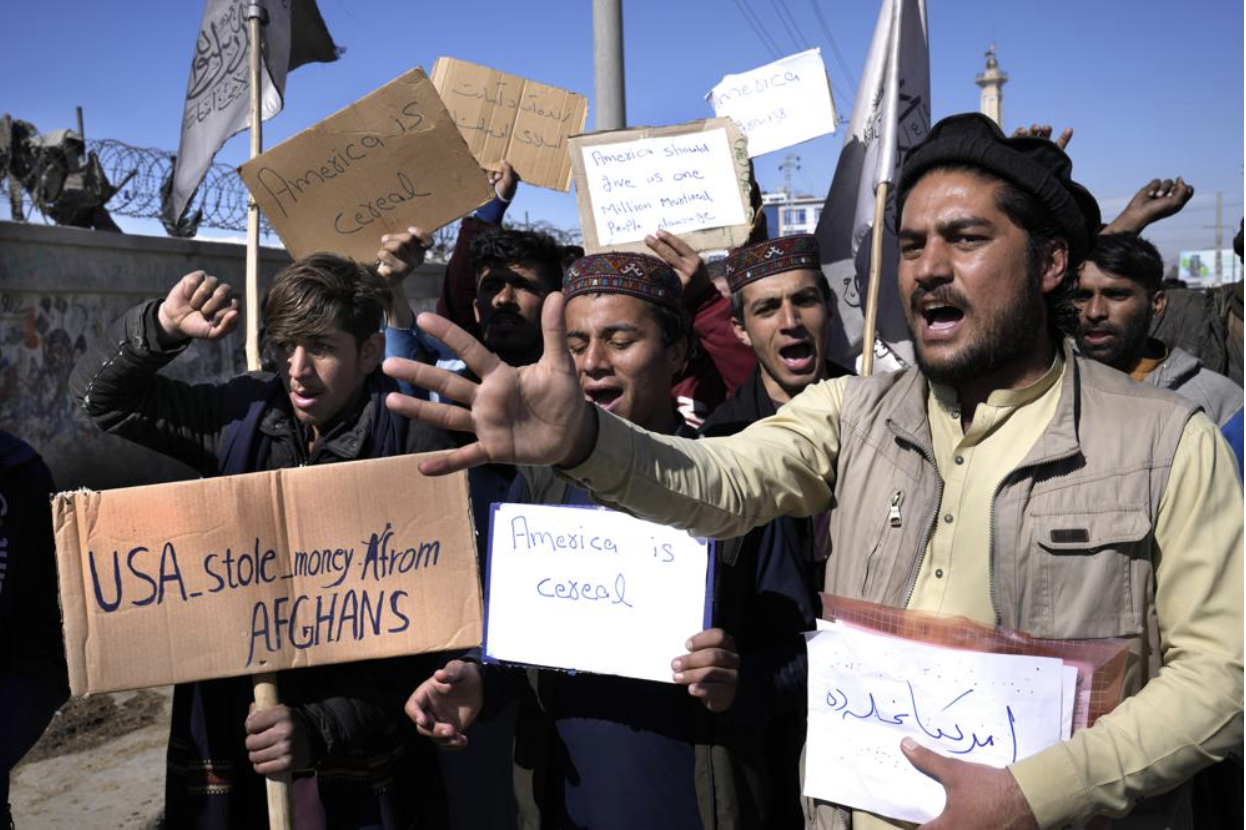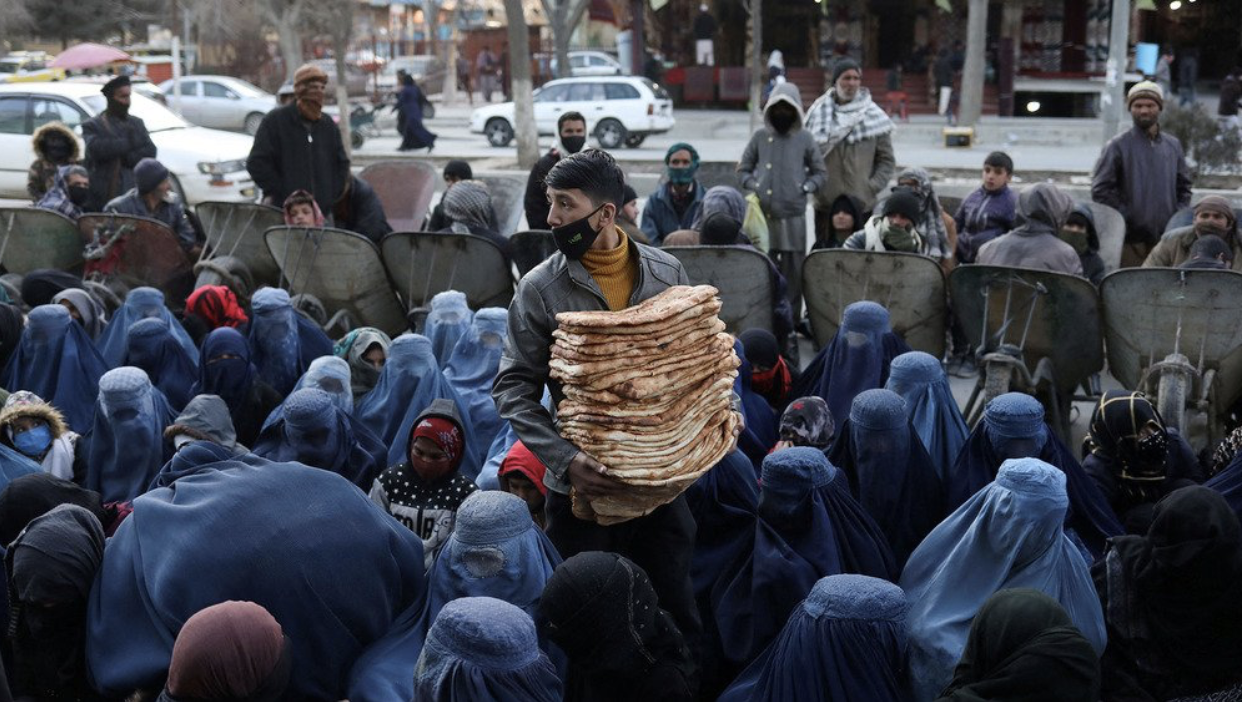Humanitarian Crisis in Afghanistan Worsens as President Biden Moves to Divide Frozen Funds
Afghans protest against part of their frozen funds being distributed among Americans. Photo: AP News
Protests erupted in Afghanistan last week, as President Biden decided to repurpose some of the $7 billion of Afghanistan’s foreign reserves that were frozen in the US. The Afghans objected in horror and disbelief as the American President moved to redirect over half the money to families of 9/11 victims.
Afghanistan has been plagued by disaster, terrorism, and war. In early 1980, 2.8 million Afghans escaped to Pakistan while 1.5 million Afghans fled to Iran due to the war between the conservative Islamic movement, Mujahadeen, and the Soviet Union-led Afghan army. The country got progressively worse after the Al-Qaeda leader, Osama Bin Laden, found refuge in the country after Al-Qaeda’s conflict with the Afghan Army and the Soviet Union. By 1995, a terrorist group, the Taliban, was established—contributing to the country’s destruction.
In 2001, in retaliation for the horrific events of 9/11, The United States of America entered into a war with Al-Qaeda, which were predominantly located in Afghanistan at the time. The war against terrorism in Afghanistan lasted for 20 years, costing over $2 trillion and claiming around 170,000 lives, finally coming to a halt in 2021.
President Biden withdrew the U.S. troops on August 31, 2021 stating, “I was not going to extend this forever war.” His abrupt decision was heavily criticized by his allies and his political opponents. The U.S. claimed to have used $83 billion to train and equip the Afghan army to defend its country. However, after the U.S. military’s departure, the Afghan army was unable to prevent the Taliban from occupying Afghanistan.
The citizens of Afghanistan heavily rely on foreign reserves. The country’s economy is dangerously collapsing. Martin Griffiths, the United Nations humanitarian chief, spoke to AP News, encouraging donor nations to provide humanitarian aid and support basic services for the Afghan people which include: education, hospitals, electricity, and paying the civil servants.
Hence, the U.S. splitting the assets and distributing $3.5 billion of them to the 9/11 victims’ families presented a stark contrast to the needs of the Afghan people. The funds have been frozen since the Taliban seized Afghanistan. In a Foreign Affairs article written by P. Michael McKinley, the former U.S. ambassador to Afghanistan, McKinley defended the President’s move as an attempt to discourage the Taliban’s power.
Man distributes food in Kabul in order to feed the people gathered. Photo: Ali Khara/Reuters
Dividing the money will greatly impact the Afghan population who are already suffering from a severe humanitarian crisis. 38 million in Afghanistan depend on foreign aid. According to the World Food Programme, 98% of the Afghans struggle to find enough food to eat. They report an increase in starvation by 17% since August 2021. Millions of them are battling starvation while others are facing human rights abuse such as public executions and a major decline in women rights.
In response to Biden’s decision, China voiced its criticism by releasing a statement emphasizing that the U.S. did not have the consent of the Afghan population. House progressives asked Biden to reconsider while others compared the action to theft.
“The people of Afghanistan share the pain of the American people, share the pain of the families and loved ones of those who died, who lost their lives in the tragedy of September 11,” said the former president of Afghanistan, Hamid Karzai, condemning the recent move by POTUS. “We commiserate with them [but] Afghan people are as much victims as those families who lost their lives. Withholding money or seizing money from the people of Afghanistan in their name is unjust and unfair and an atrocity against Afghan people.”


